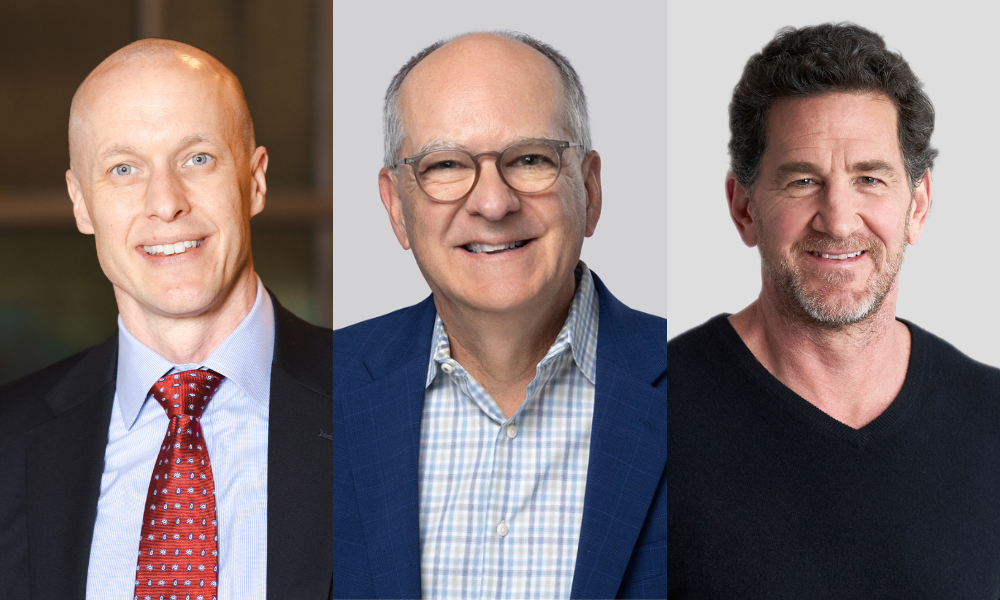

The market may be forward-looking, meaning that stock prices reflect what investors expect to happen in the future. Nevertheless, there is still value in looking back to learn a lesson or two that may improve one’s investing skills or business practices.
With that goal in mind, InvestmentNews reached out to several financial advisors and wealth managers to find out their biggest lessons learned in 2024.
Adam Dell, founder & CEO of Domain Money, for one, calls the resiliency of the US economy the big lesson of 2024.
“With all three of the biggest indicators - GDP, inflation and unemployment - in line with 10 year historical norms, what I see is a vibrant, multivariant economy able to evolve quickly. Even with perturbations as significant as the pandemic and the stimulus that followed, the US economy remains the dominant engine of value creation globally,” said Dell.
Another was struck by how rapidly the financial advisory industry continues to change and grow.
“Technology continues to improve providing scale, efficiency and an enhanced client experience. The firms that don’t keep up with change are doomed to become irrelevant in the future," said Stan Gregor, CEO of Summit Financial.
Meanwhile, election years often bring positive momentum to the markets, and 2024 has been no exception, said Patrick Nerny, senior vice president of investments at Dynasty Financial Partners.
“One of the key themes we’re focused on is the industrial renaissance unfolding in the United States. We believe this trend offers significant runway, as it not only reflects a critical shift in economic priorities but also provides an innovative angle for gaining exposure to the growing influence of AI,” Nerny said.
Speaking of the that, the historically partisan election cycle has reinforced an important lesson about the importance of long-term planning, saidBob Peterson, senior wealth advisor at Crescent Grove Advisors.
“As an advisor who started in the industry during the dot.com crash – and then also lived through 9/11, the Great Financial Crisis and COVID – I’ve seen firsthand how unexpected events can trigger swift and widespread market losses. Unlike those shocks, elections have set dates, and with clients receiving their news from more and more unreliable sources, it is understandable why both sides of the political spectrum were concerned about an ‘armageddon’ if the other side won,” Peterson said.
“However, if you look back at market returns over the last year, the right answer continues to be to invest for the long term and to understand your own level of risk tolerance. Market downturns are inevitable—it's part of investing—but basing long-term decisions on election outcomes is rarely a winning strategy,” Peterson said.
Moving on, the concentrated market leadership, like the Magnificent 7 stocks for most of 2024, posed a challenge - and a lesson - for the diversified investor, said Steve Dean, the chief investment officer at Compound Planning.
“Eventually, prices for the narrow group get stretched and the market broadens, but that shift can take a long time,” Dean said. “This year, excitement around the potential of AI as well as exceptional earnings growth delivered by these seven companies kept them far ahead of the pack for longer than many investors expected.”
Finally, the lesson another team learned this year is the same one they are reminded of every year, said Ken Stern, president of Lido Advisors.
“The lesson is to not tell our clients what products and services we offer. Rather, we listen and collaborate. What are their needs and what are their wants. With this collaboration, we can decide what we are best at and how to execute on this,” Stern said.

Decision deepens the two firms’ decade-long relationship

Linqto Inc. was one of the first tech platforms to promise access to small investors into the high-risk, high-reward world of private investments.

Since Vis Raghavan took over the reins last year, several have jumped ship.

Chasing productivity is one thing, but when you're cutting corners, missing details, and making mistakes, it's time to take a step back.

It is not clear how many employees will be affected, but none of the private partnership's 20,000 financial advisors will see their jobs at risk.
Stan Gregor, Chairman & CEO of Summit Financial Holdings, explores how RIAs can meet growing demand for family office-style services among mass affluent clients through tax-first planning, technology, and collaboration—positioning firms for long-term success
Chris Vizzi, Co-Founder & Partner of South Coast Investment Advisors, LLC, shares how 2025 estate tax changes—$13.99M per person—offer more than tax savings. Learn how to pass on purpose, values, and vision to unite generations and give wealth lasting meaning
